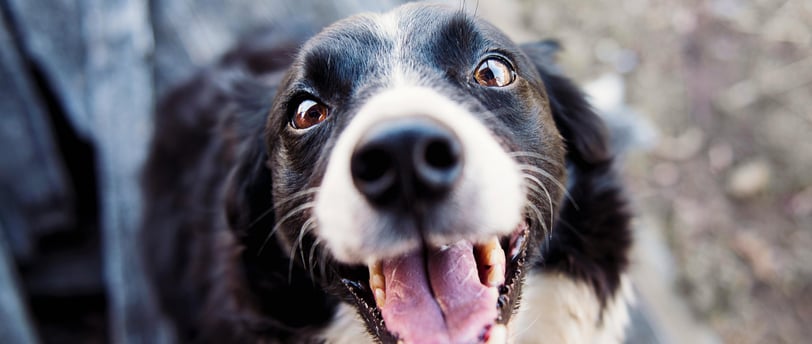Basic Dog Health and Maintenance: A Guide for Every Pet Parent
🐶 Want to keep your dog happy and healthy? This guide covers the basics of dog health and maintenance, from nutrition and grooming to exercise and dental care. Learn how to give your furry friend the best care possible for a long, joyful life! 🦴❤️ #HealthyDogs #PetCareTips #HappyPups
HEALTH & WELLBEINGPOPULAR BLOGS
11/17/20243 min read


Ensuring your dog’s health and well-being is a top priority for every pet owner. Regular maintenance and preventive care can help your furry friend live a longer, happier life. Here’s a comprehensive guide to basic dog health and maintenance tips that every dog owner should know.
1. Regular Veterinary Checkups
Why It’s Important: Routine vet visits are essential for monitoring your dog’s overall health, catching potential issues early, and keeping their vaccinations up to date.
How Often:
Puppies: Every 3–4 weeks until 16 weeks old.
Adults: Annually for checkups and vaccinations.
Seniors: Every 6 months for age-related monitoring.
Pro Tip: Keep a record of all vet visits, vaccinations, and treatments for easy reference.
2. Proper Nutrition
Why It’s Important: A balanced diet is crucial for maintaining your dog’s energy, immune system, and overall health.
What to Do:
Choose a high-quality dog food appropriate for their age, size, and breed.
Avoid feeding human foods that can be toxic, like chocolate, onions, and grapes.
Measure portions to prevent overfeeding and obesity.
Pro Tip: Always provide fresh, clean water and consider consulting your vet for specific dietary recommendations.
3. Regular Exercise
Why It’s Important: Exercise keeps your dog physically fit, mentally stimulated, and less prone to behavioral issues.
How Much:
Puppies: Short, gentle play sessions multiple times a day.
Adults: 30–60 minutes of exercise daily, depending on breed and energy level.
Seniors: Regular, low-impact activities like walks or gentle play.
Pro Tip: Tailor exercise to your dog’s needs—high-energy breeds may require more intense activity like running or agility training.
4. Parasite Prevention
Why It’s Important: Fleas, ticks, and worms can cause serious health problems if left untreated.
What to Do:
Use vet-recommended flea and tick preventatives.
Administer regular deworming medication.
Check your dog’s coat and skin after outdoor adventures.
Pro Tip: Keep your yard clean and free of standing water to reduce parasite risks.
5. Grooming and Hygiene
Why It’s Important: Regular grooming prevents skin problems, infections, and discomfort.
What to Do:
Brush your dog’s coat weekly (or daily for long-haired breeds).
Bathe your dog every 4–6 weeks or as needed.
Trim their nails every 3–4 weeks.
Pro Tip: Clean your dog’s ears regularly to prevent infections and bad odors.
6. Dental Care
Why It’s Important: Poor dental hygiene can lead to gum disease, tooth loss, and even heart problems.
What to Do:
Brush your dog’s teeth 2–3 times a week with dog-safe toothpaste.
Offer dental chews or toys to help clean teeth.
Schedule regular dental cleanings with your vet.
Pro Tip: Start dental care early to get your dog accustomed to the process.
7. Spaying or Neutering
Why It’s Important: Spaying or neutering not only prevents unwanted litters but can also reduce the risk of certain cancers and behavioral issues.
When to Do It:
Consult your vet for the best timing based on your dog’s breed, age, and health.
Pro Tip: Spaying or neutering often improves a dog’s temperament and reduces territorial behaviors.
8. Mental Stimulation
Why It’s Important: Keeping your dog’s mind active prevents boredom and destructive behaviors.
What to Do:
Provide puzzle toys or treat-dispensing games.
Teach new tricks or commands.
Rotate toys to keep things fresh and exciting.
Pro Tip: Include short training sessions during playtime to combine fun and learning.
9. Socialization
Why It’s Important: Proper socialization helps your dog feel comfortable around other animals, people, and environments.
What to Do:
Expose your dog to different situations gradually.
Arrange playdates with other dogs.
Take your dog on outings to parks or pet-friendly stores.
Pro Tip: Early socialization is key for puppies but remains important throughout their life.
10. Monitor Behavior and Health
Why It’s Important: Sudden changes in behavior, appetite, or energy levels can indicate health problems.
What to Watch For:
Excessive scratching, licking, or biting.
Unusual weight loss or gain.
Lethargy, vomiting, or diarrhea.
Pro Tip: Trust your instincts—if something seems off, consult your vet.
Final Thoughts
Caring for your dog’s health and well-being requires a combination of love, attention, and routine maintenance. By staying proactive and meeting their needs, you’ll ensure they enjoy a happy, healthy life by your side.
